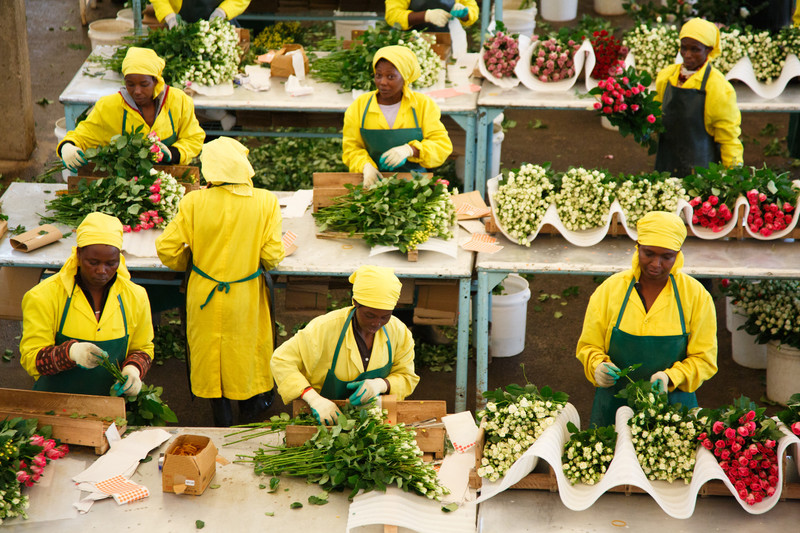Business
How Kenya Stands To Gain From UK Trade Pact

The United Kingdom (UK) has listed Uganda, Ethiopia, Rwanda, and South Sudan including other 65 developing countries as beneficiaries of a new bilateral trade deal that cuts import taxes on hundreds of products from some of the world’s developing countries to boost trade links. However, it left out Kenya since it was upgraded from the group of the least developed countries.
The UK has opened a window for Kenyan goods such as apparel and agricultural products to enjoy lower or zero tariffs despite being a Lower Middle-Income economy.
The new pact under the Developing Countries Trading Scheme (DCTS) has allowed the three countries including Uganda which is Kenya’s regional top trading partner, to import goods from Kenya and re-export them duty-free into the UK. Under the deal, Kenya’s neighbors which are classified as Least Developed Countries (LDCs) will be able to buy goods in Kenya and export the finished goods to the UK.
“This means that LDCs are able to participate in value chains involving materials from 95 countries and still export their final products to the UK duty-free,” said the UK.
According to a policy paper issued by the State Secretary for the UK’s Department of International Trade, Anne-Marie Trevelyan, the scheme will offer lower tariffs and simpler rules of origin requirements for products exported to the UK.
The deal is seen as a fresh effort to cushion the UK economy with its trading partners after Brexit.
Kenya is classified as a lower-middle income by the World Bank, which the new British scheme does not apply to. The scheme also does not apply to Low Income Countries (LIC) and Lower-Middle-Income Countries (LMIC) with a free trade agreement with the UK.
Two years ago, Kenya signed a trade agreement with Britain to ensure the uninterrupted flow of goods between the two nations after Britain transitioned out of European Union trading arrangements.
“The (new scheme) does not apply to countries classified by the World Bank as upper-middle income for 3 consecutive years, or to LICs and LMICs with a Free Trade Agreement (FTA) with the UK,” says the report.
The 2020 Kenya UK deal granted Kenyan goods duty-free and quota-free access for Kenyan exports to the UK. Britain is one of Kenya’s most important trading partners, absorbing most of its tea, cut flowers and fresh vegetables exports.
The UK market accounts for 43 percent of total exports of vegetables from Kenya as well as at least 9 percent of cut flowers.
Top goods imports to the UK from Kenya in 2020 were tea, coffee, and spices (Ksh18 billion), vegetables (Ksh11.7 billion), and cut flowers (Ksh8 billion). In return, it supplies machinery, cars, pharmaceuticals, and electronics.
The latest pact comes at a time British corporate giants such as British luxury carmaker Land Rover, Standard Chartered Bank, British American Tobacco (BAT), and Unilever are struggling to fend off a stiff challenge from the more aggressive and flexible rivals.
Until the end of the Brexit transition period, Kenya enjoyed duty-free, quota-free access to the UK’s markets through the EU’s Market Abuse Regulation (MAR).








